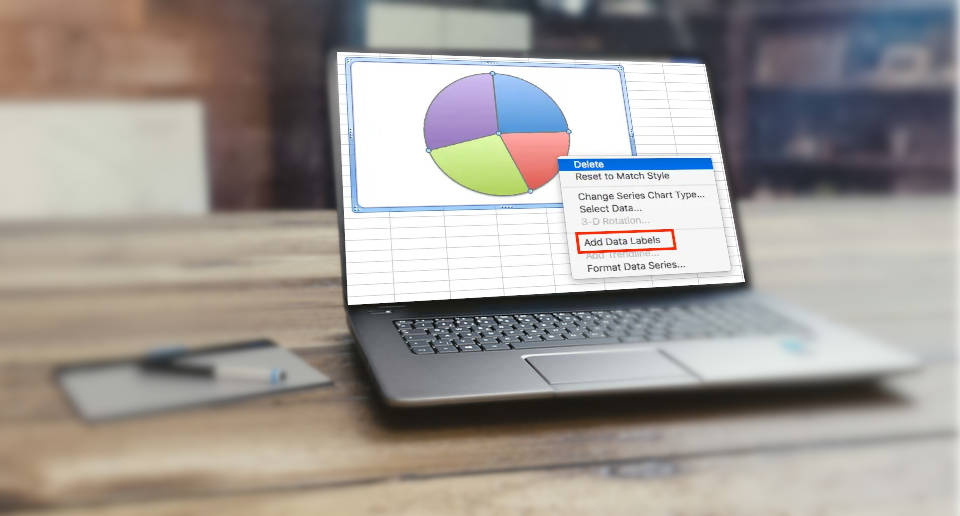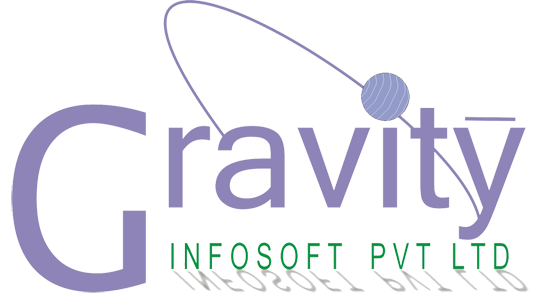Realestate Software development
The real estate industry is undergoing a significant transformation as technology continues to evolve and shape the way property transactions and management are conducted. Real estate software has become an essential tool for realtors, property managers, and developers, streamlining operations, enhancing efficiency, and improving client experiences. This comprehensive article explores the development of real estate software, examining its key features, benefits, challenges, and future trends.
Real estate software encompasses a variety of digital solutions designed to manage and optimize different aspects of the real estate business. From property listings and client management to transaction processing and market analysis, real estate software provides a comprehensive suite of tools to support and enhance the industry’s operations.

Key Features of Real Estate Software
Property Management
Listing Management: Tools for creating, managing, and updating property listings, including photos, descriptions, and pricing.
Tenant Management: Features for tracking tenant information, lease agreements, and payment histories.
Maintenance Tracking: Systems for managing and scheduling maintenance requests, tracking repair statuses, and coordinating with service providers.
Customer Relationship Management (CRM)
Client Database: Centralized storage of client information, including contact details, communication history, and preferences.
Lead Management: Tools for capturing, tracking, and nurturing leads, including automated follow-ups and reminders.
Communication Tools: Integrated communication features such as email, SMS, and chat to facilitate interaction with clients and prospects.
Transaction Management
Document Management: Secure storage and management of transaction documents, including contracts, agreements, and disclosures.
E-Signatures: Integration with electronic signature solutions to facilitate the signing of documents and contracts.
Payment Processing: Tools for managing payments, including rent collections, deposits, and transaction fees.
Marketing and Advertising
Property Listings Syndication: Automated syndication of property listings to multiple real estate platforms and websites.
Campaign Management: Tools for creating and managing marketing campaigns, including email newsletters, social media promotions, and online ads.
Analytics and Reporting: Features for analyzing the performance of marketing campaigns, tracking leads, and measuring return on investment.
Financial Management
Accounting Integration: Integration with accounting systems for managing financial transactions, including rent collections, expenses, and tax reporting.
Budgeting and Forecasting: Tools for creating and managing budgets, forecasting expenses, and analyzing financial performance.
Expense Tracking: Features for tracking and categorizing expenses related to property management and maintenance.
Market Analysis and Research
Comparative Market Analysis (CMA): Tools for analyzing market trends, comparing property values, and assessing market conditions.
Property Valuation: Features for estimating property values based on market data, recent sales, and property attributes.
Market Reports: Automated generation of market reports, including trends, forecasts, and property insights.
User Experience and Interface
Customizable Dashboards: User-friendly dashboards that provide real-time insights into property management, transactions, and client interactions.
Mobile Access: Mobile applications and responsive design for accessing the software on various devices, including smartphones and tablets.
Intuitive Design: User-centric design that simplifies navigation, reduces learning curves, and enhances overall usability.
Integration Capabilities
Third-Party Integrations: Integration with third-party systems, such as MLS (Multiple Listing Service), payment gateways, and marketing platforms.
API Support: Availability of APIs for custom integrations and data exchange with other software solutions.
Cloud-Based Solutions: Cloud-based deployment for seamless access, scalability, and data synchronization.
Benefits of Using Real Estate Software
Enhanced Efficiency
Automation of Routine Tasks: Automation of tasks such as property listing updates, lead follow-ups, and maintenance scheduling reduces manual effort and minimizes errors.
Streamlined Workflows: Integrated systems streamline workflows, from property management and transaction processing to marketing and client communication.
Improved Productivity: Tools for managing multiple aspects of the real estate business in one platform enhance productivity and reduce administrative overhead.
Improved Client Experience
Seamless Communication: Integrated communication tools facilitate prompt and effective interactions with clients, improving responsiveness and customer satisfaction.
Enhanced Property Listings: Comprehensive and up-to-date property listings with high-quality photos and detailed descriptions attract potential buyers and renters.
Convenient Transactions: Features such as e-signatures and online payment processing streamline transaction processes, enhancing convenience for clients.
Better Financial Management
Accurate Accounting: Integration with accounting systems ensures accurate tracking of financial transactions, including rent collections, expenses, and tax reporting.
Expense Management: Tools for tracking and categorizing expenses help manage budgets and control costs related to property management and maintenance.
Financial Reporting: Automated financial reports provide insights into financial performance, supporting informed decision-making and strategic planning.
Data-Driven Insights
Market Analysis: Tools for comparative market analysis and property valuation provide valuable insights into market conditions and property values.
Performance Metrics: Analytics and reporting features offer insights into marketing campaign performance, lead conversion rates, and other key metrics.
Trend Analysis: Analysis of market trends and property data supports strategic decision-making and helps identify opportunities for growth.
Enhanced Collaboration
Team Coordination: Collaboration features facilitate communication and coordination among team members, including realtors, property managers, and support staff.
Document Sharing: Secure document management and sharing capabilities ensure that all stakeholders have access to the necessary information.
Centralized Data: A centralized database provides a single source of truth for property information, client details, and transaction records.
Scalability and Flexibility
Adaptable Solutions: Real estate software can be tailored to meet the specific needs of different types of real estate businesses, including residential, commercial, and industrial properties.
Scalable Infrastructure: Cloud-based solutions offer scalability to accommodate growing businesses and expanding portfolios.
Customizable Features: Customizable features and integrations allow businesses to adapt the software to their evolving needs and preferences.
Challenges in Developing Real Estate Software
Understanding Industry-Specific Requirements
Customization Needs: The real estate industry has diverse needs and processes, requiring customizable software solutions to address specific requirements.
Stakeholder Input: Involving key stakeholders, including realtors, property managers, and developers, in the development process ensures the software meets their needs.
Integration with Existing Systems
Legacy Systems Compatibility: Ensuring compatibility with existing legacy systems and software used in real estate operations.
Data Migration: Seamless migration of data from old systems to the new software, ensuring data integrity and minimizing disruptions.
Data Security and Privacy
Regulatory Compliance: Adhering to data protection regulations, such as GDPR and CCPA, to ensure the privacy and security of client and business data.
Cybersecurity: Implementing robust security measures to protect against data breaches, cyber-attacks, and unauthorized access.
User Training and Support
Training Programs: Providing comprehensive training for users to effectively utilize the software and understand its features and functionalities.
Technical Support: Offering ongoing technical support and troubleshooting to address issues and ensure smooth operation.
Cost Considerations
Development Costs: Balancing the costs of developing a comprehensive software solution with the budget constraints of real estate businesses.
Return on Investment: Ensuring the software delivers tangible benefits and a positive return on investment for real estate professionals.



Development Process
Requirement Analysis
Needs Assessment: Identifying the specific needs and challenges of the real estate industry through consultations with stakeholders and industry experts.
Feature Prioritization: Determining the essential features and functionalities required for the software based on industry requirements and business objectives.
Design and Prototyping
User Interface Design: Creating intuitive and user-friendly interfaces to enhance usability and streamline workflows.
Prototype Development: Building prototypes to gather feedback and refine the design before full-scale development.
Development and Testing
Coding: Writing the software code based on design specifications and industry standards.
Testing: Conducting thorough testing to identify and fix bugs, ensure functionality, and validate performance.
Deployment
Implementation: Installing the software and configuring it for use in real estate operations.
Training: Providing training sessions for users to familiarize them with the software and its features.
Maintenance and Updates
Regular Updates: Implementing updates to add new features, enhance performance, and address any issues.
Support Services: Offering ongoing technical support and troubleshooting to ensure the software operates smoothly.
Choosing the Right Software Development Partner
Experience and Expertise
Industry Knowledge: Evaluating the developer’s experience in building real estate software and understanding the specific needs of the real estate industry.
Technical Skills: Assessing the technical capabilities and expertise of the development team.
Customization Capabilities
Tailored Solutions: Ability to customize the software to meet the specific requirements of real estate businesses.
Scalability: Ensuring the software can scale as the business grows and adapts to changing industry trends.
Support and Training Services
Comprehensive Support: Availability of technical support and troubleshooting services to address any issues and ensure smooth operation.
User Training: Providing training programs for users to effectively utilize the software.
Cost Considerations
Budget Alignment: Ensuring the software development costs align with the budget constraints of real estate businesses.
Value for Money: Evaluating the return on investment and long-term benefits of the software.
Future Trends in Real Estate Software Development
Artificial Intelligence (AI) and Machine Learning
Predictive Analytics: Using AI and machine learning to predict market trends, assess property values, and optimize marketing strategies.
Chatbots and Virtual Assistants: Implementing AI-driven chatbots and virtual assistants to provide instant support, answer queries, and facilitate lead generation.
Virtual and Augmented Reality
Virtual Tours: Utilizing virtual reality (VR) to create immersive property tours, allowing clients to explore properties remotely.
Augmented Reality: Using augmented reality (AR) for property visualization, enabling clients to see how furniture and décor would look in a space.
Blockchain Technology
Smart Contracts: Implementing blockchain-based smart contracts for secure and transparent property transactions.
Property Tokenization: Exploring property tokenization to enable fractional ownership and investment opportunities through blockchain technology.
Internet of Things (IoT)
Smart Homes: Integration of IoT devices for managing smart home features, such as security systems, lighting, and climate control.
Data-Driven Insights: Using IoT data to gain insights into property usage, maintenance needs, and energy efficiency.
Enhanced Data Analytics
Big Data: Leveraging big data analytics to gain deeper insights into market trends, customer behavior, and property performance.
Advanced Reporting: Development of advanced reporting tools for detailed analysis of market conditions, investment opportunities, and portfolio performance.

Real estate software development is revolutionizing the way property management and transactions are conducted, offering a range of tools to enhance efficiency, improve client experiences, and drive business success. By understanding the key features, benefits, challenges, and future trends of real estate software, industry professionals can make informed decisions and choose the right solutions to meet their needs. As technology continues to advance, the future of real estate software promises exciting innovations that will further transform the industry, driving growth, efficiency, and success.
